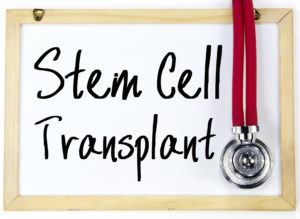 For those of you interested in autologous stem cell transplants, this paper was just published open access in “Clinical Rheumatology”: https://link.springer.com/article/10.1007/s10067-017-3954-5. Autologous HSCT may be an appropriate treatment option to consider in certain cases of rapidly progressing disease, but this is a reminder that this is still a high-risk procedure. Here is the abstract:
For those of you interested in autologous stem cell transplants, this paper was just published open access in “Clinical Rheumatology”: https://link.springer.com/article/10.1007/s10067-017-3954-5. Autologous HSCT may be an appropriate treatment option to consider in certain cases of rapidly progressing disease, but this is a reminder that this is still a high-risk procedure. Here is the abstract:
“Autologous hematopoietic stem cell transplantation (AHSCT) is thought to be effective therapeutic approach in patients with poor prognosis systemic sclerosis; however, the toxicity remains a challenge. Between years 2003 and 2016, we enrolled 18 patients with systemic sclerosis at median age at transplant of 52 years (range 24–68). The median duration of disease before AHSCT was 14 months (range 2–85). Peripheral blood stem cells were mobilized with cyclophosphamide (CY) and granulocyte colony-stimulating factor. Conditioning regimen included CY (200 mg/kg) and alemtuzumab (median dose, 60 mg) [n = 11], melphalan (MEL; 140 mg/m2) and alemtuzumab [n = 2], CY and rabbit anti-thymocyte globulin (rATG; 7.5 mg/kg) [n = 4], and CY alone (n = 1). Four deaths occurred early after transplant. There were three males and one female at median age at death of 51 years (range 24–68). The AHSCT-related deaths have been observed on days + 1, + 4, + 9, and + 15 after procedure. The causes of death included bilateral pneumonia followed by multi-organ failure in three patients and myocardial infarction in one. Three patients expired late during post-transplant follow-up, after 5, 21, and 42 months. The causes of death were disease progression in two patients and sudden heart attack in one. Eleven patients are alive after median follow-up after AHSCT of 42.0 months (range 0–95). Before proceeding to AHSCT in systemic sclerosis, there is a strong need to optimize patient selection to reduce toxicity. The administration of alemtuzumab should be avoided due to high risk of life-threatening infectious complications.”
